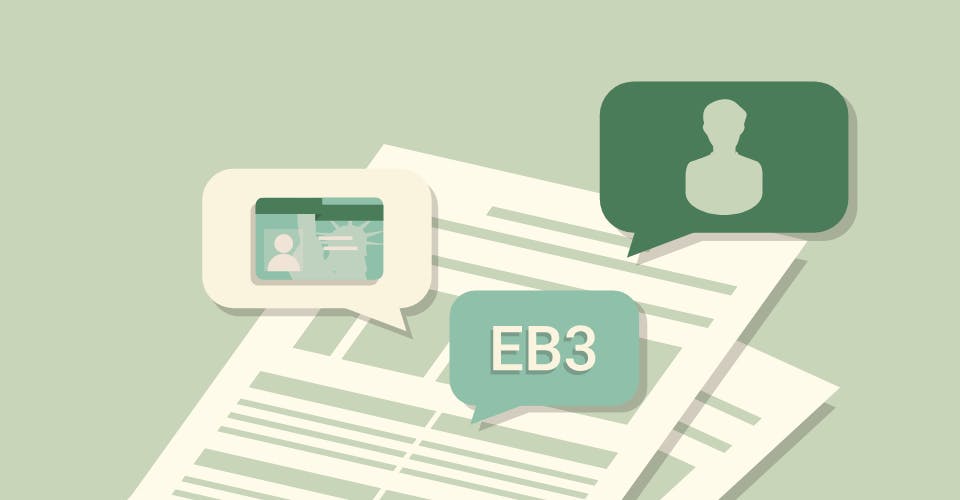Previously, we have discussed the EB1 and EB2, “employment based” visas for highly skilled workers who are coming to the United States with advanced degrees and a specialization that the United States will generally benefit from having hired such individuals. However, there is also the EB-3 class of immigrant visa that can be granted to a foreigner abroad in lieu of permanent residence or a green card.
The EB-3 refers to skilled workers, professionals, and also unskilled workers:
Skilled Workers— Those who have completed at least 2 years of job experience or training.
Professionals— Those who can prove that they have a higher educational degree or its equivalent such as a Bachelor’s Degree (but not necessarily a Masters).
Unskilled Workers—Those who have less than 2 years of work experience or training. Unskilled workers get the EW-3 visa.
The EB-3 visa is limited in the number of visas issued per year. The USCIS issues 140,000 immigrant visas in the employment category annually, and of these 140,000, about 28 percent are allocated for EB-3 recipients. After this quota is reached for the year, the rest of the applications are put on hold for the next year.
EB-3 Eligibility and Process
Here are the steps taken in order for an applicant to be eligible for an EB-3 visa.
1. First the applicant needs to find an employer who is willing to sponsor them, and the employer needs to agree to petition on their behalf.
2. The employer also must, before potentially hiring the applicant, advertise the job (for at least 30 days), and determine that no U.S. worker is either qualified, willing, or available for the job description.
3. The employer with the help of the applicant files a request for labor certification with the Department of Labor. This step must be completed before the employer fills out an I-140 Petition
4. If the USCIS approves the I-140 petition and the applicant is abroad, the USCIS will forward the approved petition to the NVC (under the State Department).
5. When an immigrant visa number becomes available (please check the Visa Bulletin for priority dates), the NVC will send the applicant an immigrant visa package they can use to complete their EB-3 application.
Click here for Visa Bulletin.
Additionally, applicants should be notified that having an EB-3 visa is not the same as applying for a green card or adjusting ones status. Employment based green cards refer to green cards that are sought out on the basis of having an immigrant visa. Some applicants will choose to file an I-485 application before they arrive in the U.S., while others might seek out a green card once they have arrived in the United States.
Fees associated with the EB-3
- DOL labor certification
- Advertising the applicable job (employer must pay, if applicable, to list job posting)
- I-140 Petition (Employer, or employee could be asked to pay the fee of $700)
- State Department Processing fee (applicant- $325)
- Financial Support Form (applicant-$120)
- Medical Exam fee (applicant-$200 or more depending on procedures needed i.e. vaccinations)
Additional Checklist
In addition, applicants who have made it to the U.S. under their EB-3 visa should check with the USCIS checklist provided that gives information on supplementary forms/documents needed to complete the I-485 application based on individual status. The checklist is available here: https://www.uscis.gov/i-485Checklist














